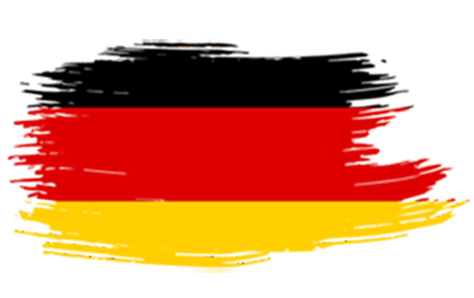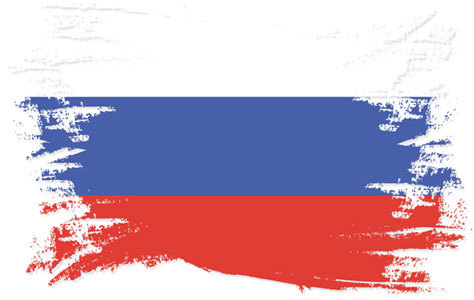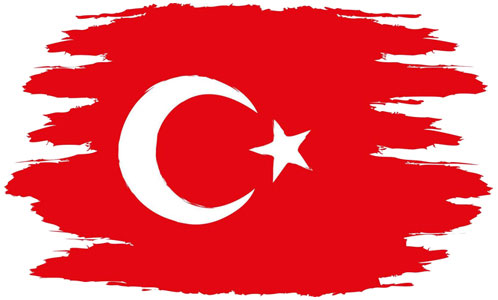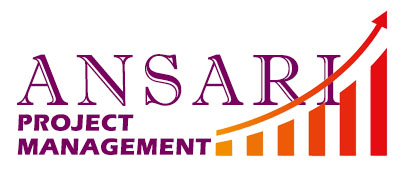1. Why are more and more people in Scandinavia interested in studying real Islam and the Holy Quran?
- One reason could be the curiosity to understand different cultures and religions.
- Increased globalization and interconnectivity have led to a greater exchange of ideas and knowledge.
2. How can studying the Holy Quran contribute to peaceful coexistence in Scandinavian societies?
- The Quran emphasizes values such as compassion, tolerance, and social justice, fostering a harmonious society.
- It encourages individuals to promote understanding and respect for diversity.
- The Quran teaches conflict resolution and encourages dialogue to resolve differences peacefully.
3. What cultural and ethnic similarities exist between Scandinavia and Islamic civilizations?
- Both have a rich literary tradition and place importance on education.
- The value placed on communal living and social welfare in Scandinavian societies aligns with Islamic teachings.
4. How can reading the Holy Quran upgrade an individual's life?
- The Quran provides guidance on leading a moral and purposeful life, helping individuals find clarity and direction.
- It offers solace, comfort, and emotional support during challenging times.
- Reading the Quran can foster a sense of spiritual connectedness and enhance personal growth and self-awareness.
5. What social problems do local nations in Scandinavia face?
- Social isolation and alienation in urban areas.
- Integration challenges for immigrants and refugees.
- Mental health issues due to a fast-paced and stressful lifestyle.
6. How can the teachings of Islam and the Quran help address social challenges in Scandinavia?
- Islam emphasizes community and communal living, promoting greater social cohesion and reducing isolation.
- The emphasis on mental well-being in Islamic teachings can provide guidance for tackling mental health issues.
7. What economic problems are prevalent in the Scandinavian region?
- Income inequality and poverty.
- Balancing the welfare state model with sustainable economic growth.
- Employment challenges for certain marginalized groups.
8. How can Islam and the Quran contribute to economic stability and prosperity in Scandinavia?
- The concept of Zakat (charitable giving) can help address income inequality and poverty by redistributing wealth.
- Islamic finance principles promote ethical banking practices, encouraging responsible investment and economic stability.
- Emphasizing fairness in
economic transactions can reduce exploitation and create a more equitable society.
9. What cultural conflicts exist within Scandinavian societies?
- Clash between traditional values and modern societal trends.
- Balancing multiculturalism with preserving local cultural identity.
- Debate over freedom of expression and protecting religious sensitivities.
10. How can Islam and the Quran bridge cultural gaps and foster a more inclusive society in Scandinavia?
- The Quran promotes respect for cultural diversity and encourages dialogue to understand different perspectives.
- Islamic teachings emphasize the importance of cultural preservation while accommodating societal changes.
- The Quran's emphasis on justice can guide policymakers in striking a balance between freedom of
expression and religious sensitivities.

Islamic principles advocate for a balanced lifestyle
11. What personal challenges do individuals in Scandinavia face in their daily lives?
- High levels of stress and burnout.
- Existential crises and lack of purpose.
- Mental health issues such as anxiety and depression.
12. How can the Quran provide guidance and support for personal well-being in Scandinavia?
- Islamic teachings emphasize mindfulness, moderation, and gratitude, which
can alleviate stress and promote mental well-being.
- The Quran offers spiritual guidance, helping individuals find meaning and purpose in their lives.
- Islamic principles advocate for a balanced lifestyle, fostering physical and mental health.
13. What environmental issues are prominent in Scandinavia?
- Climate change and its impacts on natural resources.
- Deforestation and wildlife preservation.
- Sustainable energy usage.
14. How can Islamic teachings and the Quran contribute to environmental sustainability in Scandinavia?
- The Quran emphasizes the concept of stewardship, promoting environmental conservation and responsible resource usage.
- The Quran urges individuals to be mindful of their impact on the environment, promoting responsible consumption.
15. What are the challenges of gender equality in Scandinavian societies?
- Gender pay gaps and underrepresentation in leadership positions.
- Gender stereotypes and expectations.
- Balancing work-life responsibilities for both genders.
16. How can Islam and the Quran address gender equality issues in Scandinavia?
- Islamic principles advocate for gender equity, emphasizing equal rights and opportunities for all individuals.
- The Quran supports women's empowerment and recognition of their contributions to society.
- Islamic teachings can challenge gender stereotypes and promote a more inclusive and
equal society.
17. What educational challenges exist in Scandinavia?
- Ensuring equal access to quality education for all individuals.
- The need to adapt education to the digital age and future job market trends.
- Tackling educational disparities between different socioeconomic backgrounds.
18. How can Islamic teachings and the Quran contribute to education in Scandinavia?
- Islamic principles promote the value of education and lifelong learning.
- The Quran encourages critical thinking and reflection, fostering intellectual curiosity.
- Islamic educational institutions can offer diverse perspectives and contribute to a multicultural educational environment.
19. What political challenges does Scandinavia face?
- Ensuring democratic values and respectful dialogue in an increasingly polarized society.
- Addressing political apathy and promoting greater citizen engagement.
20. How can Islam and the Quran contribute to political stability and citizen participation in Scandinavia?
- Islamic teachings emphasize justice, accountability, and transparency in governance.
- The Quran promotes respectful dialogue and consensus-building, fostering greater political inclusivity.
- Islamic principles encourage civic engagement, encouraging individuals to participate in the political process.

Islamic principles emphasize the importance of privacy
21. What technological challenges exist in Scandinavia?
- Data protection and digital privacy concerns.
- Bridging the digital divide and ensuring equal access to technological advancements.
22. How can Islamic teachings and the Quran provide guidance on technological advancements in Scandinavia?
- The Quran encourages ethical conduct and conscientious decision-making, promoting responsible technological innovation.
- Islamic principles emphasize the importance of privacy and protection of personal information, addressing data protection concerns.
- Islamic values can guide policymakers in ensuring equitable access and use of technology.
23. What healthcare challenges are prevalent in the Scandinavian region?
- An aging population and increased healthcare demands.
- Mental health issues and the need for adequate support systems.
- Health disparities between different socioeconomic groups.
24. How can Islamic teachings and the Quran contribute to healthcare improvement in Scandinavia?
- The Quran emphasizes the importance of physical and mental well-being, promoting a holistic approach to healthcare.
- Islamic principles of charity and social welfare can strengthen support systems for mental health issues.
- Islamic medical ethics
can guide healthcare professionals in providing equitable and compassionate care.
25. What challenges exist in promoting interfaith dialogue in Scandinavia?
- Prejudice and misconceptions about different religious beliefs.
- Resistance to religious diversity and the tendency to focus on homogeneity.
- Addressing deep-rooted historical conflicts and cultural biases.
26. How can Islam and the Quran foster interfaith harmony in Scandinavia?
- Islamic teachings promote respect and dialogue with people of other faiths.
- The Quran encourages finding common ground and building bridges between different religious communities.
- Islamic principles can contribute to a culture of religious tolerance and understanding.
27. What challenges do refugees and immigrants face in Scandinavia?
- Integration into the local society and labor
market.- Language barriers and cultural adaptation.
- Xenophobia and discrimination.
28. How can Islam and the Quran assist in the integration and support of refugees and immigrants in Scandinavia?
- Islamic principles emphasize compassion and kindness towards immigrants and refugees.
- The Quran promotes the support and care for vulnerable populations, encouraging solidarity and integration efforts.
- Islamic organizations can provide resources and support networks for refugees and immigrants.
29. What challenges exist in preserving cultural heritage in Scandinavia?
- Balancing the preservation of traditional customs with evolving societal norms.
- Rapid urbanization and modernization eroding cultural identity.
- Ensuring the transmission of cultural knowledge to future generations.
30. How can Islamic teachings and the Quran contribute to preserving cultural heritage in Scandinavia?
- The Quran encourages the celebration of diversity and appreciation for different cultural traditions.
- Islamic arts and architecture can contribute to preserving cultural identity and enriching Scandinavia's cultural landscape.
Dear Visitor; Please take a look at the list of 50 most visited websites in the world wide web: YouTube, Facebook, google, translate, gmail, weather, amazon, Instagram, cricbuzz, Hotmail, wordle, satta king, twitter, yahoo, yandex, sarkari result, Netflix, google maps, yahoo mail, roblox, whatsapp, NBA, BBC news, outlook, pinterest, flipkart, eBay, omegle, live score, tiktok, canva, ipl, premier league, hava durumu, ibomma, walmart, twitch, ikea, shein, linkedin, home depot, e devlet, lottery, snaptik, cricket, serie a, nfl, spotify, fox news, amazon prime; There is no book publishing related or project management website in this list. We are working hard to bring these important issues to the center of concentration of societies. Please introduce us via social media, share our website with others and help us to make our world a better place to live. Best Regards.













Write your review